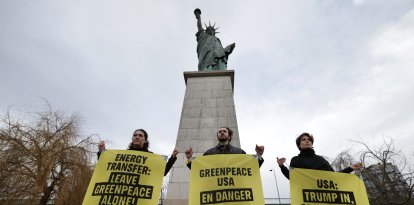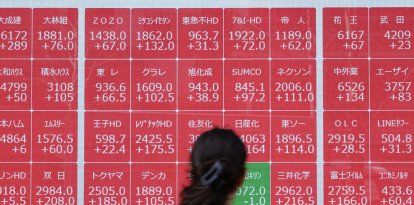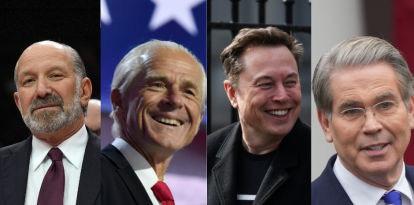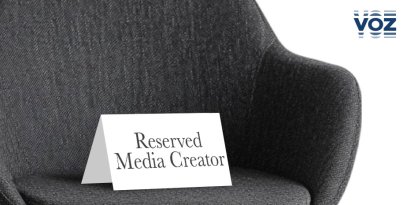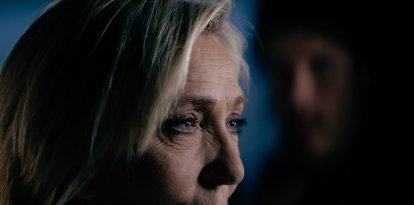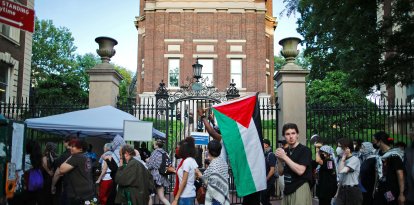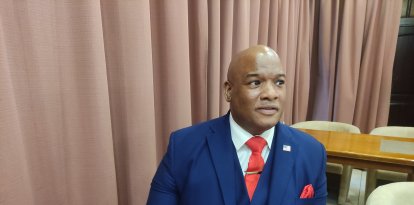Joe Biden has to reimpose sanctions on Maduro. It's the least he should do
It's sad to see how an impoverished country mocks the world's leading power.

Joe Biden has to reimpose sanctions on Maduro. It's the least he should do
Within the framework of the Barbados Agreement, signed between the United States and the authoritarian regime of Nicolás Maduro, the White House committed to lifting sanctions on the Venezuelan dictatorship in exchange for a gradual and linear process of democratic opening. Specifically, Chavismo committed to allowing the development of opposition primaries and, later, the holding of free and competitive presidential elections.
The United States not only lifted sanctions on Nicolás Maduro—measures that had been imposed by the Donald Trump Administration in response to human rights violations—; besides, returned Maduro to his front man and fundamental asset, Alex Saab, who was in an American prison under strong accusations of organized crime.
The return of Saab to Caracas, who was received as a hero, adds to the release of the narco-nephews, returned to his political uncle, Maduro, in October 2022 —Both nephews of Cilia Flores, the dictator's wife, had been arrested in November 2015 on very serious charges of drug trafficking and were serving an 18-year prison sentence in New York.
All of these concessions, surprisingly, were free. The regime of Nicolás Maduro not only failed to comply, but has intensified state terrorism to unprecedented levels. The chase began with the disqualification of María Corina Machado, who had been elected leader of the opposition in the primaries held on October 22 with 92% support and an overwhelming vote. The regime also ignored the primaries. Then, a few weeks after the primaries, he ordered the arrest of several key members of Machado's team, who had to take refuge.
Within the framework of the negotiations for the release of Alex Saab, on December 20, Maduro lifted the arrest warrants for the three members of Machado's team (Pedro Urruchurtu, Claudia Macero and Henry Alviarez). However, the repression did not stop. A few weeks later the dictatorship forcibly disappeared other members of Machado's campaign. Likewise kidnapped and disappeared for several days the renowned and prestigious human rights defender, Rocío San Miguel. He accused them all of conspiracy and destabilization.
Although the Barbados Agreement required that opposition leader Machado be qualified to participate in presidential elections, the Chavismo Court ratified the disqualification against her on January 26 of this year.
Then, the dictatorship established the date of the elections, once again violating the Agreement signed with the United States: it did not schedule them for the middle of the second half of the year, but on July 28, coinciding with the birth of Hugo Chávez.
In parallel, the regime continued to disqualify other possible candidates and prohibit opposition political parties from running in the elections.
In broad daylight, the regime kidnapped two senior leaders of Machado's team, the national coordinator Henry Alviarez and the political secretary Dignora Hernández. Later, the regime's prosecutor, Tarek William Saab, announced arrest warrants against seven members of Machado's team, including Claudia Macero and Pedro Urruchurtu. Yes, Alviarez, Macero and Urruchurtu were those who were part of the negotiations for Saab's release.
Machado, with great bravery, showed his face today at the headquarters of his Vente Venezuela party, surrounded early in the afternoon by agents of Chavismo's Intelligence. In a press conference, Machado warned of the repression, denounced that the regime seeks to leave her alone and launched a cry to the international community: "We expect much more than good wishes!"
It is a call directly to the United States. At this point it is clear that Nicolás Maduro has mocked Joe Biden. He sees no greater risk in breaking the agreements, intensifying the repression and even re-imprisoning those he released in exchange for Saab. An emboldened Caribbean dictator does and undoes what he promised the White House, because he has already taken everything he wanted from the United States.
If Biden wants to demonstrate that he is not going to be fooled by Maduro, he must, at least, reimpose the sanctions designed by former President Trump. It's the least I should do. These sanctions, which were not designed to affect Venezuelans but to harm the leadership of the dictatorship, were a response to human rights violations. They were also a way of sending the necessary message to the world that being a tyrant has a price.
Biden should not isolate and squeeze the Chavista nomenclature just for humanitarian reasons — it would be good if he did, of course, cause he has also abandoned Machado. He should do it, too, out of simple American pride. It's sad to see how an impoverished country makes fun of what is supposed to be the world's leading power. But, in addition, Biden should take Venezuela seriously, because the strengthening of Maduro also implies the strengthening of regimes such as Iran, China and Russia on the continent, just a few kilometers from Miami.
Biden must reimpose sanctions on Maduro, but he must also extend them and make them more aggressive. That is in the hands of the White House and does not imply a greater cost for Americans. But they must be efficient sanctions, like those that shook the apartheid system in South Africa or against Rhodesia. They must not only be commercial, but financial, surgical, against certain key officials of the Chavista regime. It is urgent.
RECOMMENDATION
